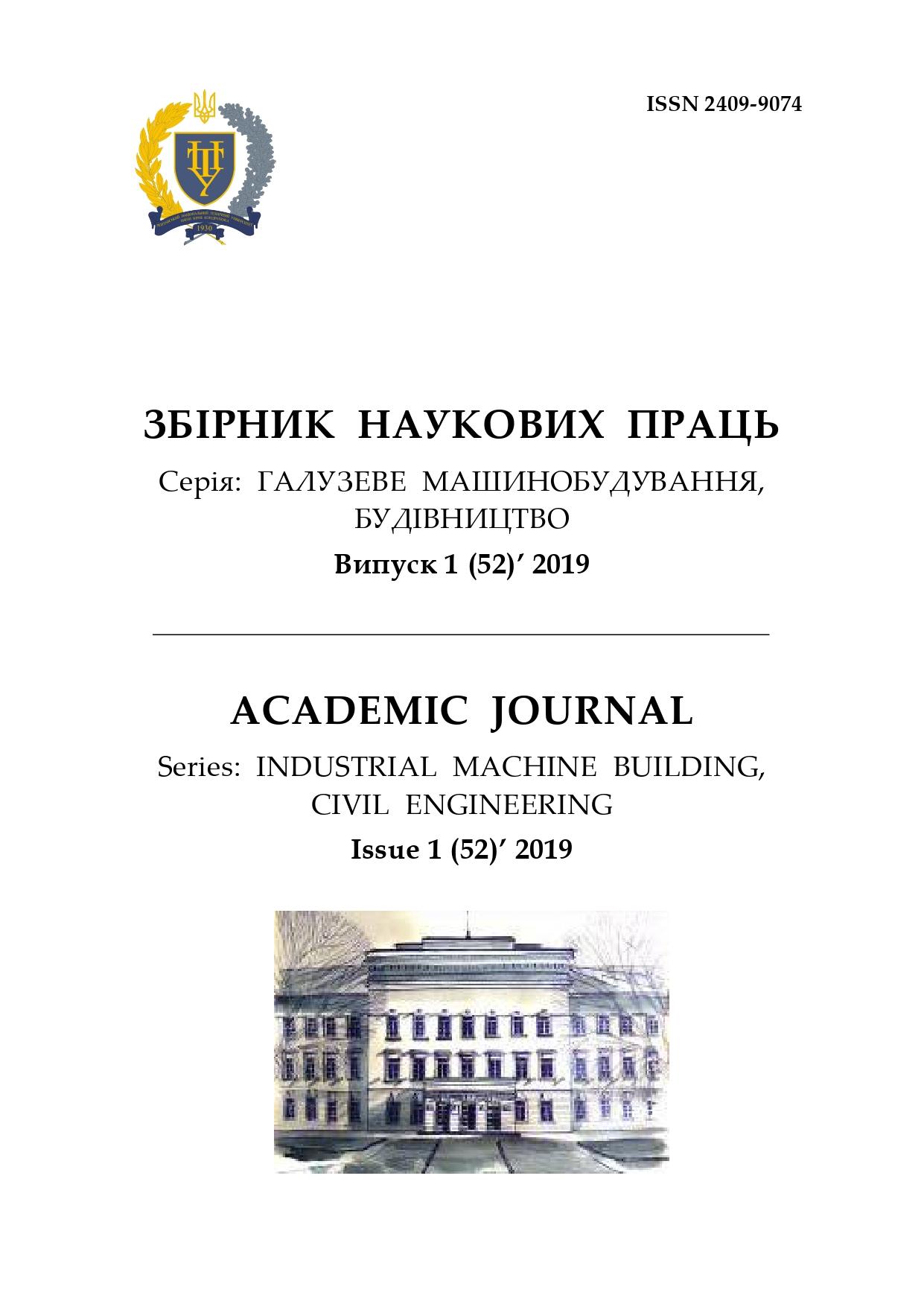Experimantal researches of the achievements of a current burdening course plates
DOI:
https://doi.org/10.26906/znp.2019.52.1680Keywords:
displacement, bearing capacity, deformed state, experimental research, unbounded overlapAbstract
The article presents the results of the experimental study of the peculiarities of the work under the calculation load of planar
superstructural plates of the developed system of non-beating overlap. Great attention is paid to the construction of bearing
structures prototype. The design of auxiliary equipment is described, which enabled to test the investigating U-block in conditions
that imitate real resistance. The method of performing experimental research with indication of methods and means of
measuring geometrical and physical parameters that characterize the stress-strain state and bearing capacity of the test plate is
given. The conducted investigations enabled to determine the nature of deformation and destruction of the superstructure
slabs as a separate element in the developed system of non-beating ceiling. Attention is drawn to the fact that the achievement
of the bearing capacity is not accompanied by the process of destruction, but is characterized by significant movements
of the supporting plots in the vertical plane
References
Nyzhnyk, О. Beamless and often ribbed steel-concrete
floors. (2012). Poltavа: Publisher Shevchenko R.V.
Storozhenko, L.I., Yermolenko, D.A., Nizhnik, O.V.,
Bogosta, V.I. & Tegza, I.I. (2014). New effective solutions
of beam-free prefabricated overlappings of multi-storey
buildings Academic journal. Series: Industrial Machine
Building, Civil Engineering, 3(42-1), 183-187.
Storozhenko, L.I., Yermolenko, D.A., Nizhnik, O.V.,
Bogosta, V.I. & Tegza, I.I. (2018). Plate connection node in
precast beamless overlay. Patent of Ukrainian 45790. Kyiv:
State Enterprise "Ukrainian Intellectual Property Institute".
Storozhenko, L.I., Nizhnik, O.V.,Yermolenko, D.A. &
Tegza, I.I. (2017). New design decisions of prefabricated
girderless floors of multi-storeyed buildings. Transbud-
– MATEC Web of Conferences 116, 02032.
https://doi.org/10.1051/matecconf/201711602032
Narayanan, R. (1988). Steel-concrete composite structures:
Stability strength. London-New York: Spon Press.
Frangopol, D.M. & Soliman, M. (1998). Life-cycle of
structural systems: recent achievements and future directions.
Structure and Infrastructure Engineering, 12(1), 1-20.
https://doi.org/10.1080/15732479.2014.999794
Mullett, D.L. (1998). Composite floor system. Wiley-
Blackwell.
Costa-Neves, L.F., da Silva, J.G.S., de Lima, L.R.O. &
Jordão, S. (2014). Multi-storey, multi-bay buildings with
composite steel-deck floors under human-induced loads:
The human comfort issue. Computers & Structures, 136,
-46.
https://doi.org/10.1016/j.compstruc.2014.01.027
Wright, H.D., Evans, H.R. & Harding, P.W. (1987).
The use of profiled steel sheeting in floor construction,
Journal of Constructional Steel Research, 7(4), 279-295.
https://doi.org/10.1016/0143-974X(87)90003-4
Broms, C.E. (2006). Concrete Flat Slabs and Footings:
Design Method for Pundching and Detailing for Ductility.
Stockholm, Royal Institute of Technology.




